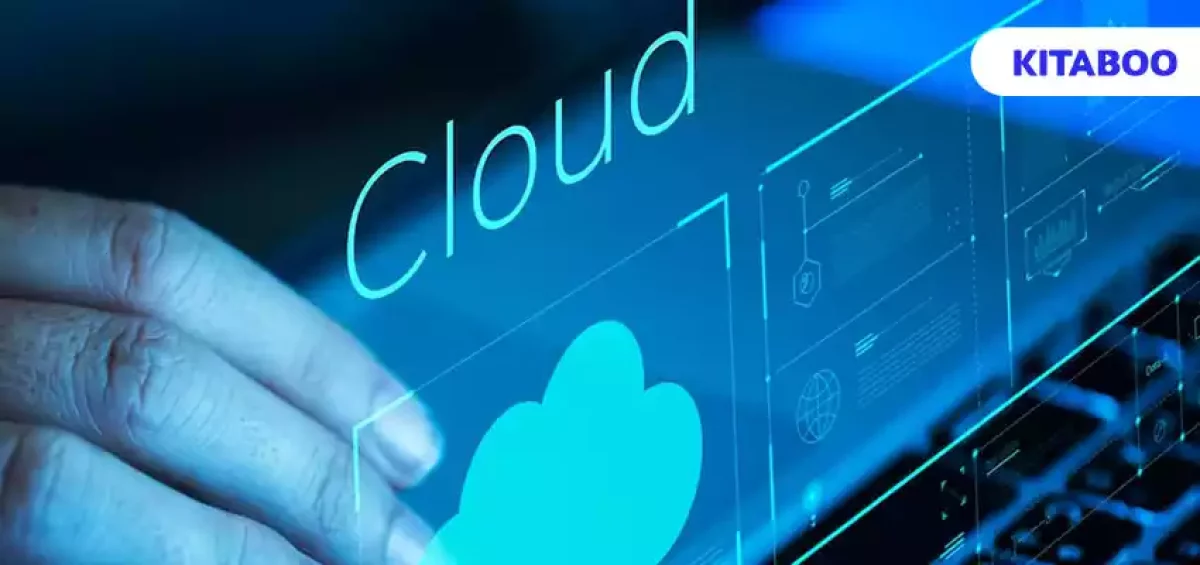The education sector is evolving and transforming at a rapid rate. Considering the emerging K12 classrooms, it has become imperative to implement cloud-based classrooms for young learners for interactive and effective learning.
Leveraging the power of cloud computing, these K12 classrooms can surpass traditional boundaries, and students and educators can engage, collaborate, and learn.
Cloud-based technologies not only offer a blended form of learning but also include interactive and exclusive digital features ranging from multimedia integration to real-time collaboration tools, which redefine the K12 educational experience.
In this context, digital textbook platforms like KITABOO cater to the diverse needs and preferences of the modern generation and make cloud-based classrooms essential components of contemporary education. It helps facilitate a more dynamic and engaging learning environment for both students and educators.
Table of Contents:
I. Importance of Cloud-Based Classrooms and K12 Learning
- Access to Modern Academic Resources
- Facilitates Real-Time Interaction and Teamwork
- Promotes Adaptive Learning and Personalization
- Allows Parents to Monitor their Child’s Progress
II. 8 Key Benefits of Cloud-Based K12 Classrooms
- Cost Effectiveness
- Environment Sustainability
- Scalability and Flexibility
- Security and Privacy
- Accessibility and Facilitation of Distance Learning
- Data Storage and Backup
- Streamlined Administrative Processes
- Professional Development Opportunities for Educators
III. Conclusion
Importance of Cloud-Based Classrooms and K12 Learning
Cloud-based K12 classrooms enable anytime, anywhere access to education, ensuring continuity in education.
Below are additional points highlighting the importance of cloud-based classrooms and K12 learning:
Access to Modern Academic Resources
Cloud-based K12 classrooms offer a centralized digital environment that enables students and educators to tap into interactive multimedia content and up-to-date educational software.
Cloud-based K12 classrooms facilitate the integration of the latest technologies and tools, ensuring that students have access to the latest trending resources that enhance their learning experiences. These resources include interactive eBooks, multimedia elements, project management tools, virtual laboratories, and hands-on training and development for students on major subjects.
Moreover, cloud-based platforms support integration with external educational apps, encouraging a diverse and enriching ecosystem of educational and research resources that cater to various learning styles and preferences.
Facilitates Real-Time Interaction and Teamwork
Cloud-based K12 classrooms facilitate real-time interaction and teamwork by offering a suite of features that are not limited by geographical barriers. Students and teachers engage in live discussions, video conferences, and group projects, which develop a sense of community, collaboration, partnerships, and active participation.
Students can work together on case studies and assignments, resolve real-life global issues, share ideas, brainstorm on global issues, and collectively problem-solve, promoting teamwork and communication skills.
Additionally, the accessibility of cloud platforms in K12 classrooms allows for synchronous interactions between students and educators, making for a more engaging learning experience.
Promotes Adaptive Learning and Personalization
Cloud-based K12 classrooms harness the power of data analytics and machine learning algorithms. These platforms can analyze individual student performance, give real-time and effective feedback, track learning patterns, and identify areas of strength and weakness.
Adaptive learning technologies within cloud-based classrooms allow for personalized learning paths, offering content and assignments that align with a student’s pace.
The flexibility of cloud platforms enables the integration of a personalized learning ecosystem that empowers educators to address the diverse needs of students, inculcating a more personalized educational experience.
Allows Parents to Monitor their Child's Progress
Cloud-based classrooms in K12 classrooms help parents monitor their child’s progress in real-time. These platforms typically offer dedicated portals or applications that allow parents to view their child’s assignments, grades, and attendance records.
Through the cloud, parents can receive instant updates on completed tasks, upcoming assessments, and overall academic performance. This offers them an opportunity to address concerns, enhance parent-teacher collaboration, and stay informed and involved in their child’s educational journey.
Cloud-based K12 classrooms thus bridge the gap between home and school, prioritizing the holistic development of students with the active participation of parents.
8 Key Benefits of Cloud-Based K12 Classrooms
Cloud services offer several benefits to K12 learning organizations and have transformed the way academic institutions operate. Here are some key advantages:
Cost Effectiveness
Cloud-based solutions applied in K12 classrooms contribute to cost-effectiveness by eliminating the need for extensive on-premises infrastructure and associated maintenance costs. Educational institutions can make the most of the trial-period models and cost-friendly subscription models offered by many cloud services.
This enables them to scale resources and avoid unnecessary upfront expenses. The cloud thus offers efficient solutions that complement the financial savings of educational institutions.
Environment Sustainability
Cloud-based K12 classrooms promote environmental sustainability, mitigate the ecological footprint associated with traditional educational models, and promote energy-efficient data centers that are operated by cloud service providers.
These platforms minimize the environmental impact of on-premises infrastructure, reduce the consumption of paper, and decrease the demand for physical materials. A hybrid learning environment lowers carbon emissions associated with transportation and supports a more sustainable and eco-friendly approach to K12 education.
Scalability and Flexibility
K–12 learning using cloud services offers educational institutions the ability to adjust their computing resources based on changing needs easily. Unlike traditional on-premises infrastructure, cloud platforms provide a scalable model where schools can effectively respond to fluctuations in student enrollment or resource requirements.
This helps institutions prevent costs, facilitate flexibility, and allow educators to experiment with various teaching methods. Teachers can incorporate new technologies and adapt to evolving educational trends.
Security and Privacy
K12 classrooms that use cloud services adhere to stringent security standards and employ advanced encryption techniques to safeguard student and teacher data. Cloud providers utilize firewalls, invest in intrusion detection systems, and conduct regular security audits to protect against unauthorized access and data breaches.
Additionally, DRM-protected digital textbook platforms like KITABOO offer cloud services that control access permissions, ensure that sensitive information is only accessible to authorized individuals, and reduce the risk of security vulnerabilities.
Accessibility and Facilitation of Distance Learning
Cloud-based K12 classrooms significantly break down geographical barriers and enable students to engage in global learning activities and participate in collaborative projects from various locations.
The cloud allows educators to deliver content in a format that can be accessed through multiple devices, like smartphones, tablets, eReaders, etc., ensuring that students with different technological capabilities can participate in remote learning. It enhances the quality of distance education by making education more adaptable and resilient to challenges in traditional classroom settings.
Data Storage and Backup
K12 learning greatly benefits from cloud services that promote efficient data storage and backup to store and organize a vast amount of data, including learning materials, student assignments, and administrative records.
Cloud providers implement data backup mechanisms, thus reducing the risk of data loss due to hardware failures or unforeseen events. They also offer features like version control and access controls to ensure that authorized users have the right level of access.
Streamlined Administrative Processes
Cloud-based K12 classrooms reduce the burden on educators and administrative staff and facilitate the efficient organization and delivery of educational content. By incorporating LMS, these services facilitate automated grading and assessment features, support real-time access to attendance records, class schedules, and student information, and enable quick and accurate decision-making.
Additionally, cloud-based solutions often integrate with other administrative tools and automate routine tasks, contributing to increased efficiency.
Professional Development Opportunities for Educators
Cloud-based K12 classrooms provide educators with a wealth of online resources and support asynchronous learning, enabling teachers to engage in professional development at their own pace and convenience.
Educators can share insights, best practices, and experiences with peers and receive personalized recommendations for professional development. By leveraging cloud technology, educators can stay current with the latest pedagogical trends, educational technologies, and teaching methodologies.
Conclusion
Interactive and effective cloud-based K12 classrooms offer a myriad of opportunities for enriched learning experiences, empower educators to create dynamic content, and provide students with the flexibility to learn at their own pace and engage in personalized activities.
Such cloud-based K12 classrooms contribute to meeting the evolving demands of modern education and use an innovative approach to lead the way to educational excellence.
KITABOO, a renowned digital textbook platform, creates a link between cloud-based classrooms and K12 learning and eventually enhances traditional educational practices. Partner with KITABOO to transform your educational journey into a dynamic and adaptive experience.
To learn more, write to us at KITABOO@hurix.com today!
Discover How An Ebook Conversion, Publishing & Distribution Platform Can Help You
Kitaboo is a cloud-based content platform to create-publish & securely distribute interactive mobile-ready ebooks.
You May Also Like









